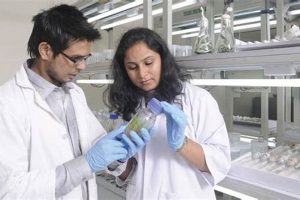Institutions offering superior forensic science programs with a specialization in crime scene investigation provide students with a comprehensive understanding of evidence collection, analysis, and preservation. These programs typically combine classroom instruction with hands-on laboratory experience and fieldwork, covering topics such as fingerprint analysis, DNA technology, trace evidence examination, firearms identification, and legal procedures. A strong curriculum often includes courses in biology, chemistry, physics, and criminal justice, equipping graduates with the scientific and investigative skills necessary for a successful career in the field.
High-quality education in this specialized area is crucial for maintaining the integrity and accuracy of criminal investigations. Skilled professionals are essential for reconstructing crime scenes, identifying perpetrators, and ensuring justice is served. The increasing complexity of criminal activities and advancements in forensic technology necessitate a robust educational foundation for those entering the field. Historically, crime scene investigation relied heavily on observation and basic scientific principles. However, modern techniques incorporate sophisticated instrumentation and analytical methods, demanding a higher level of expertise from investigators.
This demand for highly qualified professionals underscores the need for thorough research and careful selection when choosing an educational program. Factors to consider include faculty expertise, laboratory facilities, research opportunities, and connections to law enforcement agencies. The following sections will delve into specific program characteristics, curriculum details, career paths, and emerging trends in the field of crime scene investigation.
Tips for Selecting a Crime Scene Investigation Program
Choosing the right educational program is crucial for a successful career in crime scene investigation. Careful consideration of several factors can significantly impact future opportunities and professional development.
Tip 1: Research Faculty Expertise: Investigate the credentials and experience of the teaching staff. Look for instructors with practical experience in the field, advanced degrees, and ongoing research activities. Faculty members actively engaged in forensic science contribute valuable real-world insights to the curriculum.
Tip 2: Evaluate Laboratory Facilities: Modern, well-equipped laboratories are essential for hands-on training. Assess the availability of advanced instrumentation and technology used in current forensic practices, such as DNA analysis equipment, microscopes, and forensic photography tools. Practical experience with this equipment is crucial for developing essential skills.
Tip 3: Explore Internship Opportunities: Internships provide valuable practical experience and networking opportunities. Seek programs with established connections to law enforcement agencies, crime labs, and forensic science organizations. Real-world experience gained through internships significantly enhances career prospects.
Tip 4: Consider Program Accreditation: Accreditation by recognized forensic science organizations ensures a program meets rigorous standards of quality. Look for programs accredited by the Forensic Science Education Programs Accreditation Commission (FEPAC) or similar organizations. Accreditation signifies a commitment to high-quality education and professional standards.
Tip 5: Assess Curriculum Breadth and Depth: A comprehensive curriculum should cover a wide range of forensic disciplines, including DNA analysis, trace evidence examination, fingerprint analysis, and legal procedures. Ensure the program offers in-depth coverage of relevant scientific principles and investigative techniques. A well-rounded curriculum prepares graduates for diverse career paths within the field.
Tip 6: Investigate Research Opportunities: Participation in research projects allows students to develop critical thinking skills and contribute to advancements in the field. Seek programs that offer opportunities for student involvement in faculty research or independent research projects. Research experience can provide a competitive edge in the job market and graduate school applications.
Tip 7: Review Alumni Outcomes: Investigate the career paths of program graduates. Successful placement of alumni in crime labs, law enforcement agencies, and related fields indicates the effectiveness of the program. Alumni success stories can provide insights into potential career opportunities.
By carefully considering these factors, aspiring crime scene investigators can select a program that provides a strong foundation for a rewarding and successful career. A well-chosen educational path contributes significantly to professional development and preparedness for the challenges of this demanding field.
With a solid understanding of these key considerations, the subsequent conclusion will summarize the critical elements of selecting a top-tier crime scene investigation program and emphasize the importance of a thorough and informed decision-making process.
1. Accreditation
Accreditation plays a vital role in identifying high-quality forensic science education programs, serving as a crucial indicator of a program’s commitment to meeting rigorous standards. For prospective students seeking the best schools for crime scene investigation, accreditation provides assurance of a comprehensive and robust curriculum aligned with industry best practices. It signifies that the program has undergone a thorough evaluation by an independent accrediting body, verifying its adherence to specific quality benchmarks.
- Curriculum Standards
Accrediting bodies establish specific curriculum requirements that programs must meet. These standards ensure comprehensive coverage of essential topics, including crime scene processing, evidence collection and preservation, forensic photography, and legal procedures. For example, the Forensic Science Education Programs Accreditation Commission (FEPAC) sets standards for forensic science programs at the bachelor’s and master’s levels, ensuring graduates possess the necessary knowledge and skills.
- Faculty Qualifications
Accreditation assesses the qualifications and experience of faculty members, ensuring they possess the necessary expertise to deliver high-quality instruction. Accrediting bodies typically require faculty to hold advanced degrees in relevant fields and have practical experience in forensic science. This ensures students learn from qualified professionals with up-to-date knowledge and skills.
- Laboratory Facilities
Adequate laboratory facilities and equipment are crucial for effective crime scene investigation training. Accreditation standards address the quality and availability of laboratory resources, ensuring students have access to modern instrumentation and technology used in current forensic practices. For instance, access to DNA analysis equipment, microscopes, and forensic photography tools allows students to develop practical skills through hands-on experience.
- Quality Assurance and Continuous Improvement
Accreditation promotes a culture of continuous improvement within forensic science programs. Accrediting bodies conduct periodic reviews to ensure programs maintain adherence to standards and adapt to evolving industry needs. This ongoing evaluation ensures the program remains current with advancements in forensic science and provides students with a relevant education. For example, programs may need to adapt their curriculum to incorporate new technologies or address emerging forensic disciplines.
In summary, accreditation acts as a critical benchmark for evaluating forensic science education programs. By choosing an accredited program, prospective crime scene investigators gain assurance of a quality education that meets industry standards, preparing them for successful careers in the field. Therefore, accreditation serves as a key factor in identifying the best schools for crime scene investigation, signifying a commitment to excellence in education and training.
2. Faculty Expertise
The quality of instruction directly impacts the effectiveness of any educational program. In the demanding field of crime scene investigation, faculty expertise is paramount. Distinguished faculty members bring real-world experience, cutting-edge research, and specialized knowledge to the classroom, enriching the learning experience and preparing students for successful careers.
- Practical Experience
Instructors with practical experience in crime scene investigation, whether through law enforcement agencies or forensic laboratories, provide invaluable insights into the realities of the field. They can offer real-world examples, case studies, and practical tips gleaned from their own experiences, enhancing the relevance of theoretical concepts. For example, a professor who has worked as a crime scene investigator can share firsthand knowledge of evidence collection procedures, crime scene reconstruction techniques, and the challenges encountered in the field.
- Advanced Credentials
Faculty members holding advanced degrees, such as Ph.D.s in forensic science or related disciplines, contribute a deeper understanding of the scientific principles underlying crime scene investigation techniques. Their specialized knowledge allows them to delve into complex topics and provide students with a more comprehensive education. A professor with a doctorate in forensic chemistry, for instance, can offer in-depth instruction on analytical techniques used in evidence analysis.
- Research Engagement
Faculty actively engaged in research contribute to the advancement of forensic science and bring cutting-edge knowledge to the classroom. Their involvement in ongoing research projects exposes students to the latest developments and innovative techniques in the field. For example, a professor conducting research on novel DNA analysis methods can incorporate these advancements into the curriculum, ensuring students receive the most up-to-date education.
- Professional Networks
Faculty members with strong professional networks within the forensic science community can facilitate valuable connections for students. These networks can lead to internship opportunities, mentorship programs, and career guidance. For example, a professor with connections to a local crime lab can help students secure internships, providing them with practical experience and networking opportunities.
These facets of faculty expertise collectively contribute to a richer and more effective learning environment. Institutions with highly qualified and experienced faculty are better equipped to prepare students for the complexities and challenges of crime scene investigation, making faculty expertise a key factor in identifying the best schools in the field. The combination of practical experience, advanced credentials, research engagement, and professional networks significantly enhances the educational experience and prepares graduates for successful careers in this demanding profession.
3. Curriculum Rigor
A rigorous curriculum is a defining characteristic of top-tier crime scene investigation programs. The depth and breadth of coursework directly impact a graduate’s preparedness for the complexities of the field. A demanding curriculum challenges students to develop critical thinking skills, master intricate scientific principles, and apply theoretical knowledge to practical scenarios. This rigor ensures graduates possess the necessary expertise to handle the multifaceted demands of crime scene investigation. A superficial curriculum, lacking depth in core areas like trace evidence analysis or bloodstain pattern interpretation, produces graduates ill-equipped to handle complex cases, potentially jeopardizing investigations.
For example, a comprehensive program might require advanced coursework in forensic chemistry, encompassing instrumental analysis techniques crucial for identifying unknown substances at a crime scene. Similarly, in-depth study of forensic biology, including DNA analysis and serology, provides the foundation for interpreting biological evidence. Furthermore, rigorous training in crime scene photography and documentation equips students with the skills to accurately record and preserve critical details. The absence of these components in a curriculum compromises the quality of education and limits career opportunities. Conversely, a rigorous curriculum, covering these areas in detail and incorporating practical exercises and simulations, produces graduates capable of handling complex investigations and contributing meaningfully to the field.
In conclusion, curriculum rigor serves as a cornerstone of leading crime scene investigation programs. The depth and breadth of coursework, combined with practical training and real-world application, differentiate exceptional programs from less comprehensive alternatives. This demanding academic environment fosters the development of essential skills, preparing graduates for the challenges and complexities inherent in this critical field. Understanding the importance of curriculum rigor enables prospective students to make informed decisions when selecting a program and ultimately contributes to a more highly skilled and effective workforce in crime scene investigation.
4. Hands-on Experience
Practical experience forms the cornerstone of effective crime scene investigation education. Top programs recognize the critical link between theoretical knowledge and real-world application, providing students with extensive opportunities to develop practical skills through hands-on training. This experiential learning bridges the gap between classroom concepts and the dynamic environment of a crime scene, fostering competency and confidence in graduates.
- Simulated Crime Scenes
Reconstructing simulated crime scenes allows students to apply learned techniques in a controlled environment. These exercises encompass various scenarios, from burglaries to homicides, requiring students to process the scene, document evidence, and employ appropriate investigative protocols. This practical application reinforces theoretical knowledge and builds proficiency in evidence collection and preservation. For example, students might process a staged burglary scene, learning to identify points of entry, collect fingerprints, and document trace evidence. This experience provides a crucial bridge between classroom learning and real-world application.
- Laboratory Analysis
Hands-on laboratory experience provides students with the skills necessary to analyze collected evidence. Working with state-of-the-art equipment, students gain proficiency in techniques such as DNA analysis, fingerprint comparison, ballistics examination, and trace evidence analysis. This practical application of scientific principles reinforces theoretical understanding and develops the analytical skills required for accurate interpretation of forensic evidence. For example, students might analyze DNA samples collected from a simulated crime scene, learning the intricacies of DNA extraction, amplification, and profiling. This hands-on experience translates classroom knowledge into practical skills essential for a career in crime scene investigation.
- Fieldwork and Internships
Fieldwork and internships offer invaluable opportunities to observe and participate in real-world crime scene investigations. Working alongside experienced professionals, students gain firsthand exposure to the challenges and complexities of crime scene processing, evidence collection, and legal procedures. These experiences bridge the gap between academic learning and practical application, preparing students for the realities of a career in forensic science. For example, an internship at a local crime lab might involve assisting with evidence processing, observing autopsies, or shadowing experienced crime scene investigators. Such real-world exposure provides invaluable insight into the practical aspects of the profession.
- Moot Court and Mock Trials
Participating in moot court or mock trials enhances students’ understanding of the legal system and the role of forensic evidence in court proceedings. By presenting evidence and testifying as expert witnesses, students gain experience in communicating complex scientific information clearly and effectively in a legal setting. This experience builds confidence and prepares students for the demands of testifying in court. For example, students might participate in a mock trial based on a simulated crime scene they processed, presenting their findings and defending their analysis under cross-examination. This practical experience develops crucial communication and presentation skills essential for effective courtroom testimony.
These hands-on experiences, combined with a robust theoretical foundation, distinguish the best schools for crime scene investigation. The emphasis on practical application ensures graduates possess not only the knowledge but also the skills and confidence to excel in this demanding field. Institutions prioritizing experiential learning contribute significantly to producing competent and highly skilled crime scene investigators capable of meeting the challenges of modern forensic science. The ability to effectively apply theoretical knowledge in practical scenarios, as developed through these experiences, ultimately determines success in this critical field.
5. Modern Facilities
State-of-the-art facilities are integral to high-quality crime scene investigation education. Effective training requires access to cutting-edge technology and equipment mirroring those used in professional forensic laboratories. Modern facilities provide students with the practical experience necessary to master contemporary investigative techniques, ensuring graduates possess the skills required for success in the field. Substandard or outdated equipment hinders the development of essential skills, limiting career opportunities and potentially compromising the integrity of future investigations.
- Advanced Instrumentation
Access to advanced instrumentation, such as gas chromatographs-mass spectrometers (GC-MS), high-performance liquid chromatography (HPLC) systems, and DNA sequencers, is crucial for comprehensive forensic training. These instruments allow students to analyze complex samples, interpret results, and develop proficiency in the techniques employed in modern crime labs. For example, experience with a GC-MS allows students to identify unknown substances found at a crime scene, while DNA sequencers provide hands-on training in generating DNA profiles crucial for identifying suspects or victims. Lack of access to such instrumentation limits the scope of practical training, hindering a graduate’s ability to contribute effectively in a professional setting.
- Specialized Laboratories
Dedicated laboratories for specific forensic disciplines, such as trace evidence analysis, forensic biology, and ballistics, create focused learning environments. These specialized spaces often feature equipment tailored to the specific discipline, allowing for in-depth exploration and skill development. A dedicated trace evidence laboratory, for instance, might house comparison microscopes and microspectrophotometers, enabling students to analyze fibers, hairs, and other microscopic evidence. Similarly, a ballistics lab equipped with comparison microscopes and firing range facilities provides practical experience in firearms identification. The absence of such specialized spaces restricts the breadth of hands-on training, limiting a graduate’s versatility in the field.
- Digital Forensics Labs
The increasing prevalence of digital evidence requires specialized facilities for training in digital forensics. These labs provide students with the hardware and software necessary to recover data from computers, mobile devices, and other digital storage media. Practical experience in data recovery, analysis, and preservation prepares graduates to handle the growing volume of digital evidence encountered in modern investigations. A well-equipped digital forensics lab might include forensic workstations, data recovery software, and mobile device analysis tools, providing students with the resources necessary to master the intricacies of digital investigations. Without access to such facilities, graduates lack the specialized skills to contribute effectively to investigations involving digital evidence, a growing segment of forensic science.
- Crime Scene Houses/Vehicles
Simulated crime scene environments, such as crime scene houses or vehicles, provide realistic settings for practical exercises. These controlled environments allow students to apply learned techniques in scenarios mimicking real-world crime scenes. Students can process the scene, collect evidence, and practice documentation procedures, developing their skills in a realistic setting. For example, processing a staged homicide scene in a crime scene house allows students to practice securing the scene, identifying and collecting evidence, and reconstructing the events leading to the crime. Such realistic training environments bridge the gap between theory and practice, enhancing preparedness for real-world investigations. The absence of such facilities limits the opportunity for realistic scenario-based training, hindering the development of practical skills crucial for effective crime scene investigation.
These elements collectively contribute to a superior learning environment, equipping students with the practical skills and experience required for success in the demanding field of crime scene investigation. Institutions investing in modern facilities demonstrate a commitment to providing high-quality education, preparing graduates to effectively utilize contemporary investigative techniques and contribute meaningfully to the field of forensic science. The quality of facilities directly correlates with the quality of education and ultimately impacts a graduate’s career trajectory and contribution to the justice system.
6. Internship Opportunities
Robust internship programs represent a critical link between academic study and professional practice in crime scene investigation. Top-tier educational institutions recognize the value of practical experience and cultivate partnerships with law enforcement agencies, forensic laboratories, and related organizations to provide students with invaluable real-world exposure. These internships serve as a proving ground, allowing students to apply theoretical knowledge, develop practical skills, and gain firsthand insight into the complexities of crime scene investigation. The absence of substantial internship opportunities significantly limits a student’s ability to transition smoothly into a professional role, hindering career advancement and potentially compromising investigative effectiveness. For instance, an internship with a state crime lab might expose a student to advanced DNA analysis techniques or complex trace evidence examination, experiences rarely replicated in a classroom setting. This practical experience can be instrumental in securing employment after graduation.
Furthermore, internships offer a unique opportunity for networking and mentorship. Students working alongside experienced professionals gain invaluable insights into the nuances of the field, learn best practices, and establish professional connections that can prove beneficial throughout their careers. The guidance and support received from seasoned investigators during an internship can significantly shape a student’s professional development and career trajectory. Consider a student interning with a local police department’s crime scene unit. The student might assist with evidence collection at crime scenes, learn how to document findings properly, and observe the interaction between investigators and other members of the legal system. This multifaceted experience provides a depth of understanding unattainable through classroom instruction alone. Moreover, the connections forged during the internship can lead to future employment opportunities or valuable references.
In summary, internship opportunities represent a critical component of best schools for crime scene investigation. The practical experience, networking opportunities, and mentorship provided through internships enhance a student’s preparedness for the demands of the profession. Institutions prioritizing and facilitating robust internship programs demonstrate a commitment to producing highly skilled and competent graduates capable of making significant contributions to the field of forensic science. A well-structured internship program often serves as the distinguishing factor between a graduate who is merely theoretically prepared and one who is truly ready to excel in the challenging and rewarding field of crime scene investigation. The lack of such opportunities represents a significant disadvantage in an increasingly competitive job market, highlighting the crucial role internships play in shaping successful careers in this vital field.
7. Alumni Network
A strong alumni network represents a significant advantage for institutions offering crime scene investigation programs. A robust and engaged alumni network serves as a tangible indicator of program quality and provides substantial benefits to both current students and graduates. This network fosters a sense of community, facilitates career development, and contributes to the ongoing success of the program. Effective alumni networks often feature mentorship programs connecting experienced professionals with current students, offering guidance and support. For example, a recent graduate working as a crime scene investigator for a local police department might mentor a current student interested in a similar career path. This mentorship could involve sharing insights into the job application process, providing advice on navigating the challenges of the field, or even facilitating internship opportunities. Such connections provide invaluable support and contribute to a student’s professional growth and preparedness.
Furthermore, a well-established alumni network creates opportunities for professional networking and collaboration. Alumni working in various forensic science disciplines and across diverse agencies represent a valuable resource for graduates seeking employment or exploring career advancement opportunities. For instance, an alumnus employed at a state crime lab might inform their alma mater of a job opening, giving recent graduates a competitive edge in the application process. This network also facilitates collaboration on research projects, expert witness testimony, and continuing education initiatives, contributing to the advancement of the field. This interconnectedness enhances the reputation and influence of the institution and its graduates within the forensic science community. An active alumni network can also serve as a valuable resource for program development. Alumni feedback provides insights into current industry trends, emerging technologies, and employer expectations, enabling programs to adapt their curricula and teaching methodologies to meet the evolving needs of the field. This continuous feedback loop ensures the program remains relevant and prepares graduates for success in a dynamic professional landscape.
In conclusion, a strong alumni network plays a crucial role in defining best schools for crime scene investigation. It contributes significantly to student success, program development, and the overall reputation of the institution within the forensic science community. The connections, mentorship, and career support provided by a robust alumni network represent a tangible asset for both current students and graduates, enhancing their professional development and career prospects. Institutions prioritizing the cultivation and engagement of their alumni demonstrate a commitment to providing a comprehensive educational experience that extends beyond the classroom and contributes to long-term career success. The strength and engagement of an alumni network serve as a powerful indicator of program quality and a valuable resource for aspiring crime scene investigators seeking the best possible educational foundation.
Frequently Asked Questions
This section addresses common inquiries regarding educational pursuits in crime scene investigation, offering clarity and guidance for prospective students.
Question 1: What educational qualifications are typically required for crime scene investigator roles?
Most entry-level positions require at least a bachelor’s degree in forensic science, criminal justice, or a related natural science. Some agencies may prefer candidates with master’s degrees, particularly for specialized roles. Relevant coursework includes crime scene processing, evidence analysis, and legal procedures. Practical experience through internships or volunteer work significantly enhances employment prospects.
Question 2: How does one differentiate between high-quality and less effective crime scene investigation programs?
Key factors include program accreditation, faculty expertise, curriculum rigor, availability of modern facilities and equipment, emphasis on hands-on training, and internship opportunities. Thorough research, including reviewing program websites, contacting admissions offices, and speaking with current students or alumni, can provide valuable insights. Accreditation by recognized organizations like FEPAC signifies adherence to rigorous standards.
Question 3: What career paths are available to graduates of crime scene investigation programs?
Graduates can pursue careers as crime scene investigators, forensic science technicians, latent print examiners, forensic photographers, and evidence technicians. Opportunities exist within law enforcement agencies, crime laboratories, medical examiner’s offices, and private forensic firms. Some graduates may pursue further education, specializing in areas like DNA analysis or toxicology.
Question 4: Is prior law enforcement experience necessary for a career in crime scene investigation?
While prior law enforcement experience can be beneficial, it is not always a prerequisite for entry-level crime scene investigation positions. Many agencies hire individuals with strong scientific backgrounds and provide on-the-job training specific to law enforcement procedures. A solid educational foundation in forensic science and practical experience through internships are often considered more critical than prior law enforcement experience for certain roles.
Question 5: How important is continuing education in the field of crime scene investigation?
Forensic science is a constantly evolving field with continuous advancements in technology and investigative techniques. Continuing education is crucial for professionals to stay current with these developments, maintain competency, and enhance career prospects. Workshops, conferences, online courses, and professional certifications demonstrate a commitment to ongoing learning and professional development.
Question 6: What personal qualities contribute to success in a crime scene investigation career?
Essential qualities include meticulous attention to detail, strong analytical and problem-solving skills, excellent communication and report writing abilities, objectivity and ethical conduct, and the ability to work independently and as part of a team. The demanding nature of the work also requires resilience, adaptability, and the ability to handle stressful situations.
Careful consideration of these frequently asked questions provides valuable information for prospective students navigating the educational landscape of crime scene investigation. Thorough research and informed decision-making are crucial for selecting the appropriate educational path and ensuring a successful and rewarding career in this demanding field.
The following section will provide concluding remarks and summarize key aspects of choosing a program best suited to individual career goals.
Conclusion
Superior forensic science programs specializing in crime scene investigation equip students with the necessary skills and knowledge for a successful career. Key factors in identifying leading programs include accreditation, experienced faculty, rigorous curricula, modern facilities, hands-on training, and valuable internship opportunities. Thorough research and careful consideration of these factors are essential for making informed decisions. Institutions prioritizing these elements cultivate graduates prepared for the complexities and challenges of this demanding field, ultimately contributing to more effective and just outcomes in the criminal justice system.
The pursuit of excellence in crime scene investigation hinges on a commitment to high-quality education and continuous professional development. As forensic science continues to evolve, so too must the training of future investigators. Selecting an exceptional educational program represents a pivotal step towards a rewarding and impactful career in this vital field. The future of forensic science relies on the dedication and expertise of those entering the profession, underscoring the significance of choosing a program that fosters both intellectual growth and practical proficiency. A well-informed decision today paves the way for a successful and impactful contribution to the field of crime scene investigation tomorrow.







